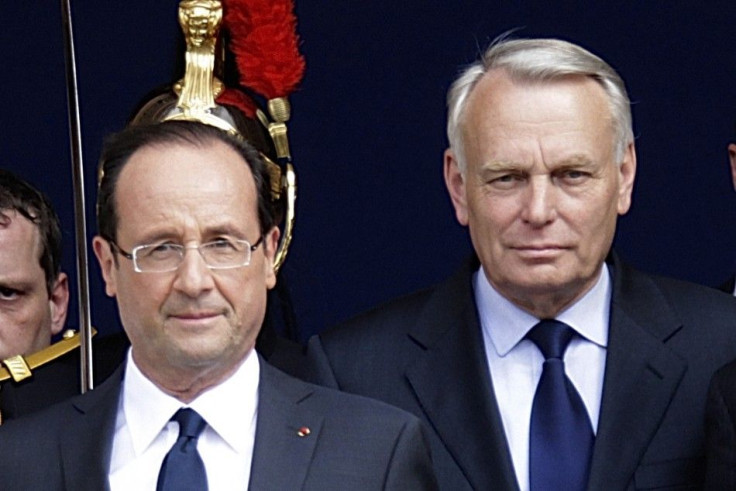Socialists Expected To Gain Majority In France?s Parliamentary Election

France’s Socialist Party is expected to coast to victory Sunday in the second round of parliamentary elections that will largely be seen as a resounding rejection of the economic policies of ousted center-right President Nicolas Sarkozy.
President Francois Hollande, the Socialist who beat Sarkozy in presidential elections in May, has vowed to scale back the austerity measures of his predecessor, while promising to create thousands of new jobs and focus on economic growth.
Polls taken on Friday night indicate that the Socialists (who already control the Senate) will gain a majority in the lower house of the National Assembly. Hollande’s party could take up to 330 seats in the runoff, which would give him control of the 577-seat Assembly and greater leverage in implementing his economic program.
Among other measures, Hollande seeks to hire 60,000 new schoolteachers and slap a huge tax on those earning €1 million a year or more. He is also at odds with German Chancellor Angela Merkel over the euro zone’s near-term future and with spending cuts.
Under the interim government of Prime Minister Jean-Marc Ayrault, the Socialists have already reduced the retirement age for some employees to 60 from 62 (undoing another of Sarkozy’s policies) and slashed Cabinet ministers' pay by 30 percent.
Douglas Yates, assistant professor of political science at the American University of Paris and professor at the American Graduate School in Paris, said that with a solid majority in the National Assembly, the Socialist Party may be able to govern alone -- that is, without the Greens or the former Communists -- and therefore pursue its legislative program unrestrained by the tug-of-war of multi-party coalition politics.
William Lameth, a 39-year-old Frenchman, told the Daily Telegraph of Britain: I voted for the Socialist Party. It has been a long time since they were in power and they must be supported now. We need reforms in this country and with a majority Hollande will be able to do what needs to be done.
While the Socialists are guaranteed to win, there is much concern over how well the extreme right-wing, anti-immigration National Front (FN) of Marine Le Pen will do. In last week’s first-round parliamentary poll, FN scored a historic 13.6 percent of the vote – meaning it could actually put some of its members in parliament for the first time since 1986 and potentially become France’s third-largest party.
Turnout will also be closely watched – the first round of the parliamentary vote attracted only 57 percent, a 54-year low, suggesting many French voters are bored and tired of the seemingly endless campaigning despite their concerns about a fragile economy.
James Shields, professor of French politics and modern history at Aston University in Birmingham, England, noted the “abstention [rate]… reflects a widespread disaffection and growing cynicism towards politics, a loss of faith in the ability of politicians to solve France's economic and social problems.
© Copyright IBTimes 2024. All rights reserved.




















